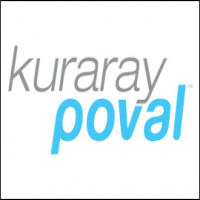Polyvinyl Alcohol Partially Hydrolyzed: Applications, Properties, and Advantages

Strong 8k brings an ultra-HD IPTV experience to your living room and your pocket.
Polyvinyl alcohol partially hydrolyzed is a synthetic polymer that has gained considerable attention in various industrial and research applications. Its unique combination of water solubility, film-forming capability, and adjustable mechanical properties makes it an ideal choice for industries like adhesives, coatings, textiles, and pharmaceuticals. This article delves into the nature of polyvinyl alcohol partially hydrolyzed, its key properties, applications, and why it has become a preferred material for a range of applications.
What is Polyvinyl Alcohol Partially Hydrolyzed?
Polyvinyl alcohol (PVA) is a water-soluble polymer that is synthesized through the hydrolysis of polyvinyl acetate. The term "partially hydrolyzed" refers to the degree of conversion of polyvinyl acetate to polyvinyl alcohol. In the case of polyvinyl alcohol partially hydrolyzed, not all acetate groups are removed during the hydrolysis process, leaving behind a portion of the polyvinyl acetate structure.
The degree of hydrolysis significantly influences the properties of polyvinyl alcohol partially hydrolyzed. This means that the percentage of remaining acetate groups affects characteristics like solubility, water resistance, and flexibility. Typically, polyvinyl alcohol partially hydrolyzed has a degree of hydrolysis ranging from 80% to 90%. This composition allows it to balance the need for water solubility and mechanical strength, making it suitable for many applications.
Properties of Polyvinyl Alcohol Partially Hydrolyzed
The unique properties of polyvinyl alcohol partially hydrolyzed make it suitable for a variety of industrial uses. Some of its key characteristics include:
1. Adjustable Water Solubility
One of the standout properties of polyvinyl alcohol partially hydrolyzed is its water solubility. Due to the remaining acetate groups in its structure, it dissolves more easily in cold water compared to fully hydrolyzed PVA. This makes it an excellent choice for applications where controlled solubility is required, such as in water-soluble packaging or capsules.
2. Film-Forming Capability
Polyvinyl alcohol partially hydrolyzed is known for its ability to form clear and strong films. These films are used in various applications like coatings, packaging, and adhesives due to their transparency, flexibility, and toughness. The partially hydrolyzed nature of the polymer allows the films to maintain a balance between flexibility and tensile strength.
3. Adhesion and Binding Properties
Due to its molecular structure, polyvinyl alcohol partially hydrolyzed exhibits excellent adhesive properties, particularly when applied to porous materials like paper, wood, and textiles. It can serve as a binding agent in coatings, adhesives, and even as a thickener in emulsions.
4. Compatibility with Other Polymers
Polyvinyl alcohol partially hydrolyzed is often used in combination with other polymers to create composite materials that benefit from the properties of each component. Its ability to mix with other polymers allows manufacturers to produce materials with enhanced mechanical, thermal, and chemical properties.
5. Biodegradability
As a water-soluble polymer, polyvinyl alcohol partially hydrolyzed is considered to be biodegradable under certain conditions. Its ability to break down in the environment makes it an attractive option for applications focused on reducing plastic waste and improving environmental sustainability.
Applications of Polyvinyl Alcohol Partially Hydrolyzed
The versatile nature of polyvinyl alcohol partially hydrolyzed allows it to be used across various industries. Here are some of its most common applications:
1. Adhesives
One of the primary uses of polyvinyl alcohol partially hydrolyzed is in the formulation of adhesives. Due to its film-forming ability and strong adhesion to porous surfaces, it is commonly used in glues for paper, cardboard, and packaging. Its adjustable water solubility allows manufacturers to design adhesives that can be easily washed away or remain intact under specific conditions.
2. Textile Industry
In the textile industry, polyvinyl alcohol partially hydrolyzed serves as a sizing agent for yarns, improving the weaving process by providing the yarn with strength and reducing breakage. After weaving, the water-soluble nature of the polymer makes it easy to remove from the fabric through washing, ensuring the final product has a soft and smooth texture.
3. Water-Soluble Films and Packaging
The water solubility of polyvinyl alcohol partially hydrolyzed makes it ideal for creating water-soluble films used in packaging applications. These films are used for single-dose packaging of detergents, fertilizers, and even pharmaceuticals. The partially hydrolyzed variant ensures that the packaging dissolves under specific conditions, providing controlled release and minimizing waste.
4. Pharmaceuticals
In the pharmaceutical industry, polyvinyl alcohol partially hydrolyzed is used in the formulation of capsules and tablet coatings. Its ability to form films and control solubility makes it suitable for time-release medications, where the drug is released gradually in the body. It also serves as a stabilizer in certain liquid formulations.
5. Paper Coating and Emulsions
Polyvinyl alcohol partially hydrolyzed is widely used in the paper industry as a coating agent. It enhances the strength, smoothness, and printability of paper products. Additionally, it acts as a thickener and stabilizer in various emulsion formulations used in coatings and paints, providing consistency and uniformity to the final product.
6. Construction Materials
In the construction sector, polyvinyl alcohol partially hydrolyzed is utilized in cement and mortar mixtures to improve workability and reduce cracking. Its binding properties help in enhancing the adhesion between different layers of construction materials, making it a valuable additive for improving the performance of construction composites.
Advantages of Using Polyvinyl Alcohol Partially Hydrolyzed
The adoption of polyvinyl alcohol partially hydrolyzed in various applications is driven by several advantages:
1. Customizable Properties
The ability to control the degree of hydrolysis allows manufacturers to tailor the properties of polyvinyl alcohol partially hydrolyzed to meet specific needs. This customization makes it possible to develop products with precise solubility, mechanical strength, and flexibility.
2. Environmental Friendliness
As environmental concerns become increasingly important, polyvinyl alcohol partially hydrolyzed offers a more eco-friendly alternative to traditional plastics. Its biodegradability in water-based environments makes it suitable for applications where reducing environmental impact is a priority.
3. Safety and Non-Toxicity
Polyvinyl alcohol partially hydrolyzed is non-toxic and safe for use in applications where contact with skin or ingestion is a concern. This makes it a preferred choice for pharmaceutical applications and food packaging, where safety is a top priority.
4. Cost-Effectiveness
The availability of polyvinyl alcohol partially hydrolyzed as a raw material and its straightforward production process make it a cost-effective choice for a variety of industrial applications. Its adaptability means that it can often replace more expensive or less environmentally friendly materials.
Challenges in Using Polyvinyl Alcohol Partially Hydrolyzed
While polyvinyl alcohol partially hydrolyzed offers many benefits, it also presents certain challenges that need to be addressed:
1. Sensitivity to Moisture
One of the primary challenges with polyvinyl alcohol partially hydrolyzed is its sensitivity to moisture. In applications where prolonged exposure to water or humidity is expected, additional treatment or blending with other materials may be necessary to maintain performance.
2. Limited Thermal Stability
Polyvinyl alcohol partially hydrolyzed tends to have limited thermal stability, which can restrict its use in high-temperature applications. This can be a disadvantage in industries like automotive or electronics, where materials often need to withstand elevated temperatures.
3. Complex Processing Requirements
To achieve the desired properties in specific applications, the processing of polyvinyl alcohol partially hydrolyzed can require precise control over temperature, mixing conditions, and other factors. This can make the manufacturing process more complex and require specialized equipment.
Future Prospects of Polyvinyl Alcohol Partially Hydrolyzed
As industries continue to seek sustainable and versatile materials, polyvinyl alcohol partially hydrolyzed is expected to play an increasingly important role. Ongoing research into enhancing its properties and expanding its applications could lead to new breakthroughs in biodegradable packaging, pharmaceutical formulations, and more. Innovations in blending and composite materials could also help to overcome existing challenges, making it a more widely adopted solution across various sectors.
Conclusion
Polyvinyl alcohol partially hydrolyzed stands out as a versatile and adaptable material with applications ranging from adhesives and coatings to pharmaceuticals and biodegradable packaging. Its unique balance of water solubility, film-forming ability, and environmental benefits makes it an attractive choice for manufacturers looking for innovative and sustainable solutions. While challenges remain, the continued development of polyvinyl alcohol partially hydrolyzed promises to expand its role in modern industry, offering a greener and more adaptable alternative to traditional polymers.
Note: IndiBlogHub features both user-submitted and editorial content. We do not verify third-party contributions. Read our Disclaimer and Privacy Policyfor details.


